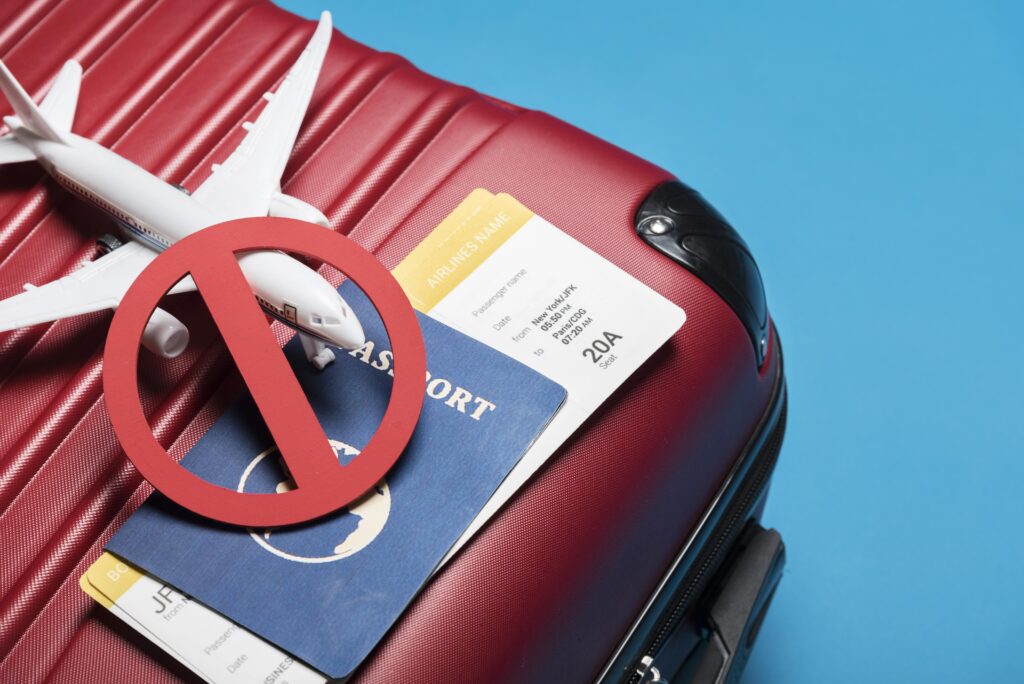Trump’s Visa Policy: Global Ripple Effects: In June 2025, President Donald Trump introduced a sweeping set of changes to the U.S. immigration and visa system, reshaping how students, skilled professionals, tourists, and families around the world interact with the United States. Framed under national security and economic protection, these changes mark a significant shift from previous policies and have already created ripple effects across global education, labor markets, and diplomacy.
These are the latest updates on U.S. visa challenges. For more detailed and personalized information, please contact us directly.
Miler Michel

Expanded Travel Ban – Now Covering 43 Countries
Trump’s 2025 U.S. Travel Ban: A Comprehensive Overview of Policy Changes, Global Reactions, and Ongoing Challenges
On June 4, 2025, President Donald Trump signed a sweeping executive order reinstating and expanding travel restrictions on foreign nationals from 19 countries. Set to take effect on June 9, this policy marks a significant shift in U.S. immigration strategy, echoing the controversial “Muslim ban” of 2017 but with broader implications.(theguardian.com)
Scope of the 2025 Travel Ban
The new proclamation imposes a comprehensive entry ban on nationals from twelve specified countries. (cntraveler.com)
- Afghanistan
- Myanmar
- Chad
- Republic of the Congo
- Equatorial Guinea
- Eritrea
- Haiti
- Iran
- Libya
- Somalia
- Sudan
- Yemen(apnews.com, elpais.com)
Additionally, seven countries face partial restrictions, affecting specific visa categories such as B-1/B-2 (tourist/business), F (student), M (vocational student), and J (exchange visitor) visas:
- Burundi
- Cuba
- Laos
- Sierra Leone
- Togo
- Turkmenistan
- Venezuela(nbclosangeles.com)
The administration cites national security concerns, including terrorism and inadequate information-sharing, as justification for these measures. (reuters.com)
Exemptions and Implementation Details
The State Department has clarified that existing visas issued before June 9 will remain valid. However, individuals without valid visas as of that date will be denied entry. Exemptions include:(apnews.com, newsweek.com)
- Legal permanent residents (green card holders)
- Dual nationals traveling with a passport issued by a non-restricted country are not subject to the entry ban.
- Certain family-based immigrant visa applicants
- Athletes participating in specific events
- Holders of diplomatic or official visas(boundless.com, immigration.dickinson-wright.com, reuters.com, elpais.com)
Despite these exemptions, travelers are advised to anticipate additional scrutiny at U.S. ports of entry.
Global and Domestic Reactions
The announcement has elicited strong reactions both internationally and within the United States.
- International Response: Leaders and citizens from affected countries have expressed dismay. Chad’s president responded by suspending U.S. visa issuances, and Sudanese diplomats questioned the ban’s justification. (reuters.com)
- Impact on International Students: The ban has caused significant anxiety among international students, particularly those from Iran and Venezuela. Many have altered travel plans, fearing they may not be able to return to the U.S. to continue their studies. (washingtonpost.com)
- Criticism from Advocacy Groups: Civil rights organizations and legal experts have criticized the ban as discriminatory and a continuation of previous exclusionary policies. They argue that the policy undermines American values and could face legal challenges. (theguardian.com)
Legal Considerations and Potential Challenges
While the 2017 travel ban faced numerous legal challenges, culminating in a Supreme Court decision upholding a revised version in 2018, the 2025 ban has been crafted to better withstand judicial scrutiny. By focusing on visa issuance rather than revoking existing visas and including specific exemptions, the administration aims to present the policy as a national security measure rather than a discriminatory act. (shglawpa.com, apnews.com)
However, legal experts anticipate that the ban will still face lawsuits, particularly concerning its impact on families, students, and workers from the affected countries. The consistency and rationale behind the selection of countries are also expected to be points of contention.
Broader Implications
The 2025 travel ban constitutes a major shift in the United States’ immigration policy, with far-reaching implications:, with far-reaching implications:
- Diplomatic Relations: The ban may strain relationships with the affected countries, potentially impacting cooperation on various international issues.
- Higher Education: U.S. universities may experience a decline in international student enrollment, affecting cultural exchange and financial resources.
- Workforce Diversity: Restrictions on work visas could lead to talent shortages in certain industries, impacting economic growth and innovation.
- Humanitarian Concerns: The ban raises questions about the U.S.’s commitment to humanitarian principles, particularly concerning refugees and asylum seekers from conflict zones.
Conclusion
President Trump’s 2025 travel ban marks a significant and controversial shift in U.S. immigration policy. While the administration asserts that the measures are necessary for national security, critics argue that the ban is discriminatory and undermines America’s foundational values. As the policy takes effect, its legal, social, and economic impacts will continue to unfold, prompting ongoing debate and potential legal challenges.
For expert help through every step of the process, please contact Eden Recruitments for a personalized consultation and make your visa journey smoother and faster.




